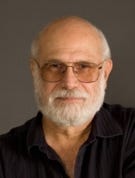Will robots replace people?
March 11, 2015
About a month ago, our friends at Manufacturing Business Technology magazine emailed to me a link to a video posted by TED entitled Are Droids Taking Our Jobs? TED is a neat little non-profit organization devoted to generating and disseminating ideas that the organizers think are worth spreading. Generally, I don't pay a lot of attention to TED because I find ideas that somebody else thinks are important floating around all of the time. It's like the old saying about opinions ... everybody has one.
Every time I do pay attention to TED, however, I seem to find the experience worthwhile. This definitely applies in the present case. The video in question presented a talk by management theorist Andrew McAfee. I won't go into what the man said; I'll just provide you a link to the video so you can go check it out for yourself. The important thing for this blog is that McAfee's comments lead inevitably to thinking about the old Sci-Fi doomsday scenario of a society where robots have taken over so much of society's work that people become superflous. The robots then decide to eliminate the humans.
Just how realistic is this doomsday scenario? Those of us who remember that the "Fi" in Sci-Fi stands for "fiction" tend to laugh it off as just another plot device to generate an interesting story, but is that all there is to it?
Technophiles (and you, dear reader, have shown yourself to be a technophile simply by reading this far into this document) generally agree that a human being fits the description of a self-propelled mechanism guided by a sophisticated software system. On that level, a human being is indistinguishable from a robot. Theologians may debate the existence of "free will" until the cows come home, but we know that it's all a matter of the software provided. If it's sophisticated enough, you get something that looks "Free Willy." (Stupid reference to a daft film from the 1990s intended.) If not, then not.
Anyway, it's so far been impossible to clearly identify anything humans do that can't be simulated in a robot. Unless and until that's done, we're forced to assume anything humans do can be done by a robot. Ergo, no job humans do is safe from automation.
There is, however, one important difference between humans and automated systems: we design them, not the other way around. Humans decide "Hey, it would be great to have an automated system to do X." Then, because a human did that, an automated system to do X comes into existence. Without the human, however, progress stops because there's nobody to want it to continue.
From that point of view, it's difficult to imagine a scenario in which robots replace people.

C.G Masi
C.G. Masi has been blogging about technology and society since 2006. In a career spanning more than a quarter century, he has written more than 400 articles for scholarly and technical journals, and six novels dealing with automation's place in technically advanced society. For more information, visit www.cgmasi.com.About the Author(s)
You May Also Like


